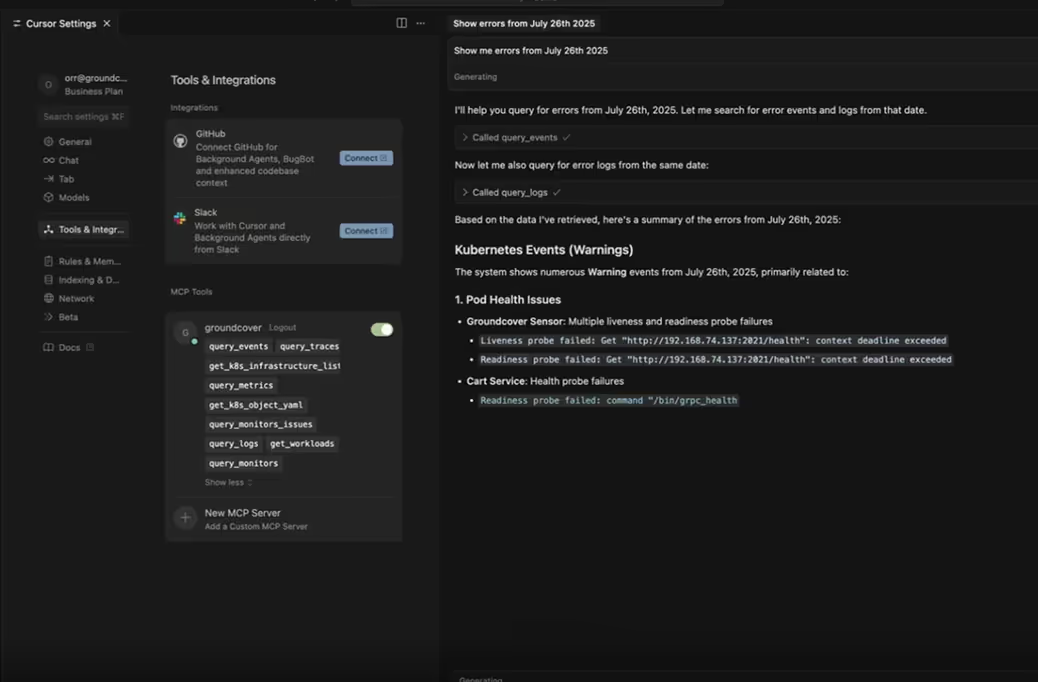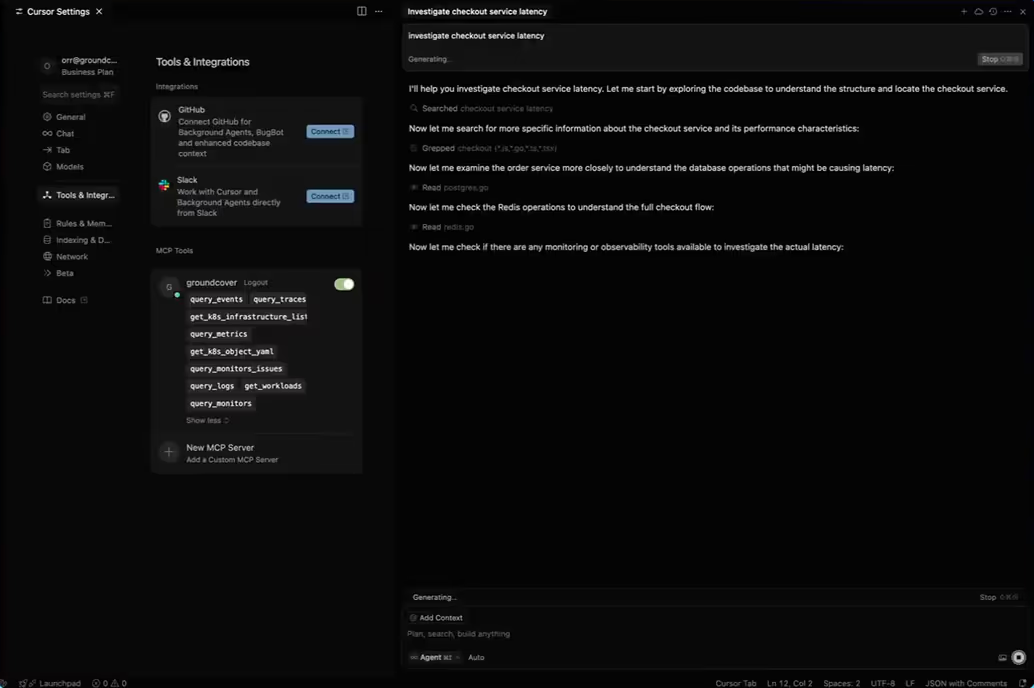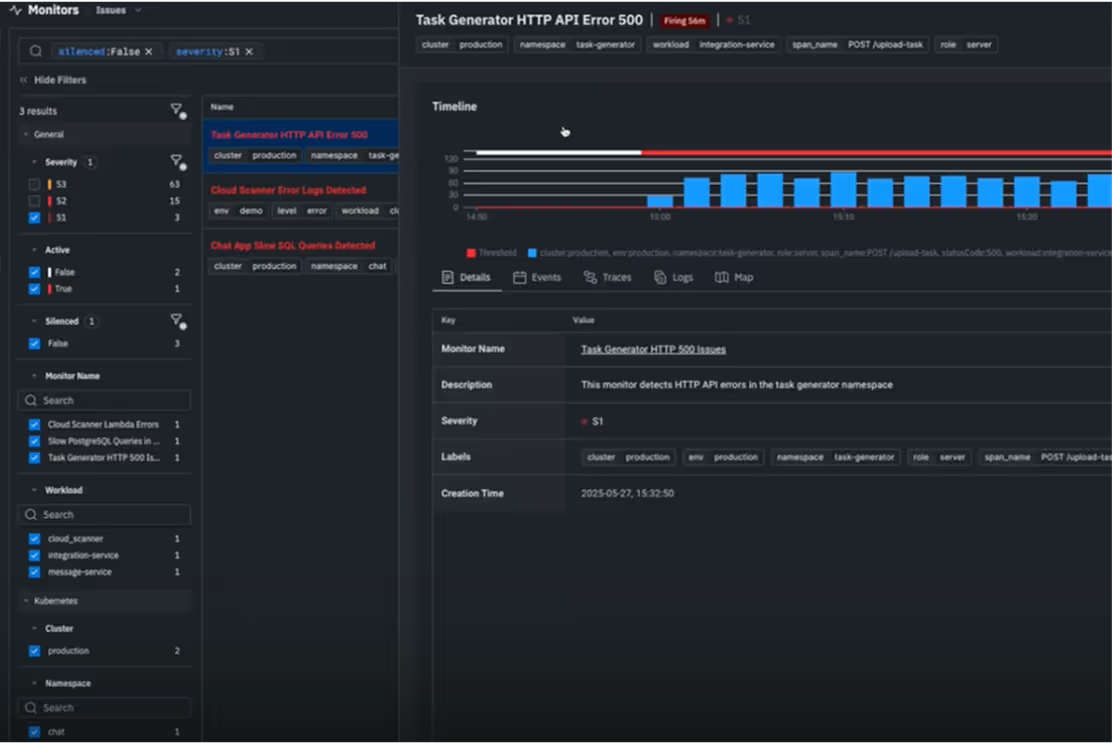groundcover MCP server
Unlimited context
to your AI agent
groundcover MCP delivers production-grade telemetry to LLMs, IDEs, and on-call workflows, with zero code and zero noise.
Enrich your AI workflows with real observability context
AI agents often fall short when querying traditional APIs for system insights. groundcover MCP Server changes that — connecting groundcover’s deep observability data to tools like Cursor and Claude Code. Your favorite AI assistant can now access real-time production data to power smarter debugging, incident troubleshooting and automation, natively and effortlessly.


Accelerate incident response with AI
groundcover MCP Server enables your AI assistants to connect the dots across logs, metrics, traces, and infrastructure metadata to spot anomalies, detect subtle trends, and explain the “why” behind incidents. It’s not just an assistant—it’s an always-on observability expert embedded in your workflow. Turn your AI agent into a senior SRE on your team 24/7 — only faster, scalable, and embedded directly into your workflow.

Natural language meets deep telemetry
Observability data isn’t a single stream - it’s a dense mesh of logs, traces, metrics, and infrastructure metadata. Traditionally, making sense of it meant mastering query languages, juggling dashboards, and stitching context across different visualizations and timelines. With groundcover MCP Server, your AI agents surface rich, correlated answers from the full observability stack — using a natural language query prompt. No query syntax. No tab fatigue. Just instant, unified insight.

Real-life use cases
Support agent
Instantly answer customer inquiries with context-aware insights pulled from real-time logs, metrics, and traces. groundcover MCP helps support teams quickly identify root causes and respond with clarity.
On-call agent
When every second counts, MCP acts as your co-pilot. Reduce mean time to resolution (MTTR) with instant anomaly detection, AI-generated summaries of system behavior, and guided investigation paths across your environment.
Dev IDE agent
Get observability baked into your development workflow. MCP provides live feedback on service health, performance regressions, and error traces, right when and where developers need it most, even before code hits staging.
Tooling access to observability
Expose core observability features through reliable, fast APIs:
Ready to rethink observability?
Deploy groundcover on your environment in minutes, or explore it on our data before lighting up your own cluster.















.svg)